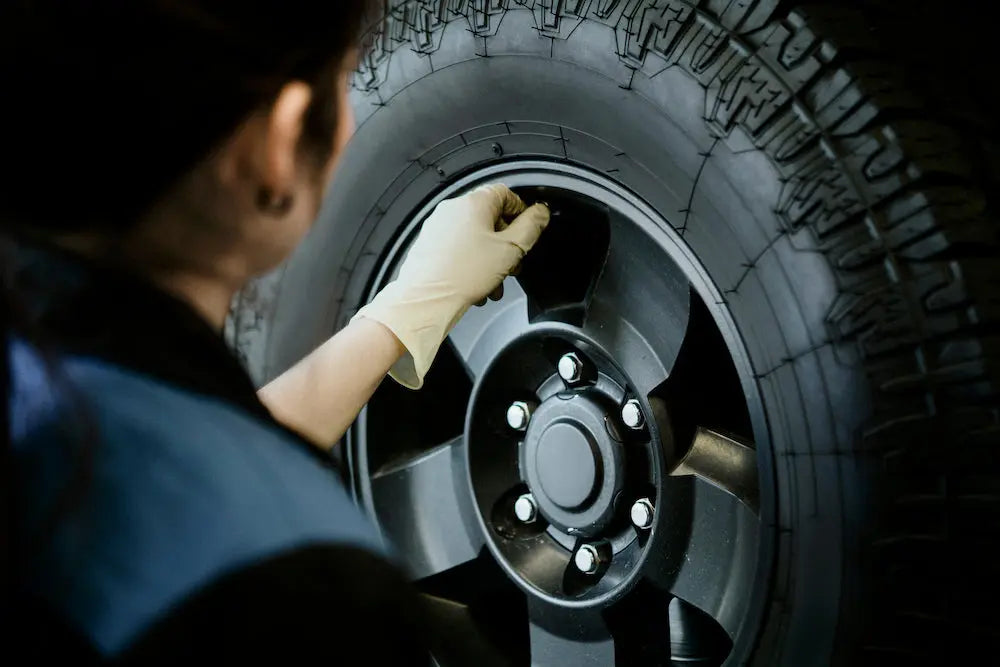Driving in mountainous terrain presents unique challenges that require careful preparation and the right equipment, particularly when it comes to tires. The importance of selecting appropriate tires for your truck or SUV cannot be overstated, as it directly impacts your safety, vehicle performance, and overall driving experience. This comprehensive guide will help you understand why tire choice matters, explore top tire brands, and provide practical advice on preparing for mountain driving.
Why Tire Choice Matters
Safety Considerations
Mountain roads can be unpredictable, with varying surfaces such as gravel, dirt, mud, and sometimes snow or ice. Having the right tires enhances your traction, which is crucial for maintaining control and preventing accidents. Better traction reduces the risk of slipping or losing control, particularly on steep or winding roads.
Vehicle Performance
The right tires can significantly improve your vehicle’s handling and stability. All-terrain or specialized tires are more durable and resistant to punctures from sharp rocks or debris, ensuring a smoother and more controlled ride. Proper tires also enhance load-carrying capacity, which is useful for trucks and SUVs carrying extra gear or equipment.
Peace of Mind
Knowing that your tires are equipped to handle the terrain gives you peace of mind, allowing you to enjoy your journey without worrying about tire issues. Being prepared for diverse and often challenging conditions ensures you can handle unexpected situations, such as sudden weather changes.
Evaluating Your Current Tires
Before embarking on a mountain trip, it’s essential to evaluate your current tires:
Tread Depth and Condition
Ensure your tires have sufficient tread depth for adequate traction. Check for any signs of wear, damage, or aging, such as cracks, bulges, or punctures, which could compromise their performance.
Proper Inflation
Check that your tires are inflated to the recommended pressure levels. Underinflated or overinflated tires can affect handling and increase the risk of blowouts.
Alignment and Balancing
Ensure your wheels are properly aligned to prevent uneven tire wear and improve vehicle handling. Balanced tires provide a smoother and safer ride.
Top Tire Brands for Quality and Performance
Selecting a reputable tire brand ensures you get quality, durability, and performance. Here are some top brands to consider:
Michelin
Renowned for high-quality tires that offer excellent performance, durability, and fuel efficiency. Popular models include Michelin Pilot Sport, Michelin Defender, and Michelin Premier.
Bridgestone
Known for innovation, safety, and a wide range of options for different driving conditions. Popular models include Bridgestone Dueler, Bridgestone Turanza, and Bridgestone Blizzak.
Goodyear
Offers a variety of reliable and durable tires that perform well across different terrains. Popular models include Goodyear Eagle, Goodyear Wrangler, and Goodyear Assurance.
Continental
Praised for superior handling, braking performance, and safety features. Popular models include Continental CrossContact, Continental ExtremeContact, and Continental TrueContact.
Pirelli
Synonymous with high-performance tires, often chosen for sports cars and luxury vehicles. Popular models include Pirelli P Zero, Pirelli Scorpion, and Pirelli Cinturato.
Yokohama
Known for excellent performance, innovative design, and affordability. Popular models include Yokohama Geolandar, Yokohama Advan, and Yokohama Avid.
Hankook
Offers a good balance of quality and affordability. Popular models include Hankook Dynapro, Hankook Ventus, and Hankook Kinergy.
BFGoodrich
Well-regarded for rugged, durable tires that perform well off-road. Popular models include BFGoodrich All-Terrain T/A KO2, BFGoodrich Mud-Terrain T/A KM3, and BFGoodrich Advantage T/A.
Cooper
Known for durability, performance, and value. Popular models include Cooper Discoverer, Cooper Evolution, and Cooper Zeon.
Dunlop
Praised for performance, handling, and ride comfort. Popular models include Dunlop Grandtrek, Dunlop SP Sport, and Dunlop Signature.
All-Terrain Tires: A Suitable Choice for Mountain Driving
Versatility
All-terrain tires are designed to handle both paved roads and off-road conditions, making them ideal for mountain driving where surfaces can vary significantly.
Traction
These tires typically have deeper treads and more aggressive patterns, providing better traction on loose surfaces like dirt and gravel, which are common in mountainous regions.
Durability
All-terrain tires are built to be more durable and resistant to cuts and punctures, essential when driving over rocky or uneven terrain.
Load Carrying Capacity
They are often constructed to handle heavier loads, useful for trucks and SUVs carrying extra gear during mountain trips.
Alternative Tire Options
Depending on your specific needs, consider the following alternatives:
Mud-Terrain Tires
Best for very rough, muddy, or rocky trails, offering superior off-road performance. However, they are less comfortable on paved roads.
Winter Tires
Provide superior traction for snowy or icy conditions. Look for tires rated for severe snow conditions, indicated by the Three-Peak Mountain Snowflake symbol.
Highway/Touring Tires
Ideal for mostly paved roads with occasional mild off-road use, offering a smoother and quieter ride.
Preparing for Mountain Driving Even on Vacation
Safety Benefits
Changing or inspecting your tires before a mountain vacation enhances safety by providing better traction and handling on challenging roads.
Cost Considerations
While there is an upfront cost, having the right tires can save money in the long run by preventing damage to your vehicle and reducing wear and tear on your tires. If changing tires is inconvenient, consider renting a vehicle equipped with appropriate tires.
Tire Chains
For winter conditions, carrying tire chains can be an alternative. They provide additional traction when needed but are not a substitute for proper all-terrain or winter tires.
Practical Tips for Mountain Driving
Regular Inspections
Regularly inspect and maintain your tires, checking for proper inflation, tread depth, and overall condition.
Carry Essential Tools
Ensure you have a spare tire in good condition and the necessary tools to change a tire in case of emergencies.
Understanding Tire Chains
If using tire chains, practice installing them before your trip and understand how to use them properly in snowy or icy conditions.
Conclusion
Choosing the right tires for mountain terrain is crucial for ensuring safety, enhancing vehicle performance, and providing peace of mind. By evaluating your current tires, selecting reputable brands, and preparing adequately for mountain driving, you can enjoy a secure and enjoyable journey. Prioritize safety and performance to navigate the diverse and often challenging conditions of mountain terrain confidently.
Find more information on choosing the right tires on Garages And Workshops!








Reader Interactions